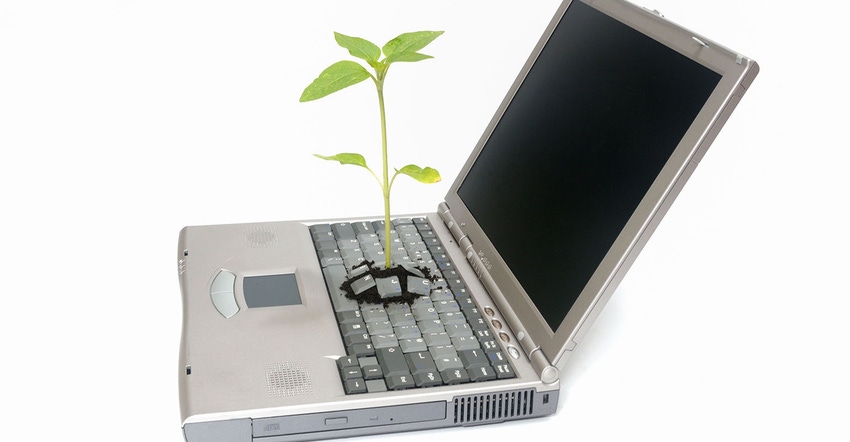Why the Plastics Industry Should Embrace Carbon Accounting
As companies strive to lower their carbon footprint, carbon accounting can be an effective first step in establishing environmentally friendly business practices.
September 30, 2022

Alexis Normand
Despite major efforts by environmentalists to spread the word about the dangers of plastic to our environment, plastic consumption and production are actually rising across the globe. This means that, in addition to the harm that plastic waste does to our oceans and wildlife, we need to contend with the expanding carbon footprint of the plastics production process.
Research from the Center of International Environmental Law reported that emissions from plastics production could reach 1.34 gigatons per year by 2030. This is equal to the emissions from 295 coal-fired power plants. And the outlook for plastic production by 2050 is even worse.
While this paints a dismal picture of a planet battling an existential plastic problem, there are signs that change is coming. Governing bodies continue to introduce new policies to combat the environmental effects of plastic. In March 2022, the member countries of the United Nations signed a treaty with the goal of ending “the plight of plastic pollution.” Details are forthcoming, but the goal is to address plastic production across its lifecycle and reduce the amount of plastic that ends up in landfills and oceans.
While the end of plastic pollution is still some way off, climate concerns are mounting and forcing governments and corporations to act. This year’s record-breaking heat waves and droughts will only exacerbate this.
The race toward decarbonization is likely to ramp up within the next few years. So, how should the plastics industry respond?
The benefits of carbon accounting
The key to much-needed shifts in the carbon emissions of the plastics industry could be carbon accounting, sometimes referred to as greenhouse gas accounting. Carbon accounting is the process companies undertake to measure the amount of carbon dioxide emissions for which they are responsible.
The main goal of carbon accounting is to assign a concrete value to the carbon dioxide and greenhouse gas emissions that a company produces. This allows carbon credits to be traded among states, companies, and various individuals in the carbon market.
As more companies strive to lower their own carbon footprint and reach net-zero carbon emissions, carbon accounting serves as an excellent first step in establishing environmentally friendly business practices. In short, carbon accounting provides companies and third parties with numerical data, so that companies can take responsibility for their carbon footprint.
Carbon accounting also leads to carbon assessment. So, carbon accounting is essentially coming up with a number. Carbon assessment puts that number to use to allow companies to fully understand their carbon emissions and — far more important — implement necessary actions to actively reduce those emissions and create a more sustainable business.
How to leverage carbon accounting
Carbon accounting for a carbon-heavy industry like plastics is certainly complex. And many environmental activists believe that the industry would be unwilling to reduce its carbon footprint voluntarily. So, what would be the point of monitoring it in the first place?
First, having an extensive overview of carbon emissions can ultimately help companies save money throughout their supply chain. Effective carbon accounting can help companies identify where they can drive down costs and find less costly solutions.
What’s more, the tides of both public opinion and investor sentiment are definitely turning. Consumers are looking for their favorite brands to act decisively to address climate change. And Wall Street is increasingly taking sustainability into account when making decisions about where to invest. Investors and consumers are more likely to respond positively to companies that are taking tangible steps toward greener ways of doing business.
The plastics industry has the potential to set an example for all other industries on the importance of measuring their carbon footprint. It could actually influence other high-carbon-emitting companies, or companies with a poor environmental record, to do the same. It could leverage this influence into the development of carbon-offsetting initiatives, efforts to fund recycling programs around the world, and further research into biopolymers.
More accountability, less greenwashing
Carbon accounting also allows companies to gather and distribute concrete data that can help establish transparency and trust with consumers and investors alike. The more transparent the accounting process, the less likely companies will be subject to accusations of greenwashing.
The fear of accusation and reprisal is all too real. This summer, the Changing Markets Foundation slammed an array of organizations for stating misleading information about the use of recycled plastic. The report claimed that these companies didn’t actually provide any proof about how they’re addressing plastic pollution. Carbon accounting could have served as evidence that these companies were, indeed, striving to reduce carbon emissions.
Carbon accounting also enables governments to pass new laws or requirements regarding the lifecycle of plastics. Companies that calculate their carbon emissions through a verified process like carbon accounting can demonstrate a willingness to comply with these new environmental regulations.
Be prepared
We believe there are players in the plastics industry that understand the tangible and intangible benefits of lessening the environmental impact of plastics. That starts with carbon accounting.
It seems clear that governments around the world will eventually require carbon reporting. Companies would be wise to start preparing now for such a seismic policy change. And once the plastics industry makes the shift, other industries will surely follow.
About the author
Alexis Normand is co-founder and CEO of Greenly, a provider of carbon assessment and accountability solutions for small to large companies.
You May Also Like


